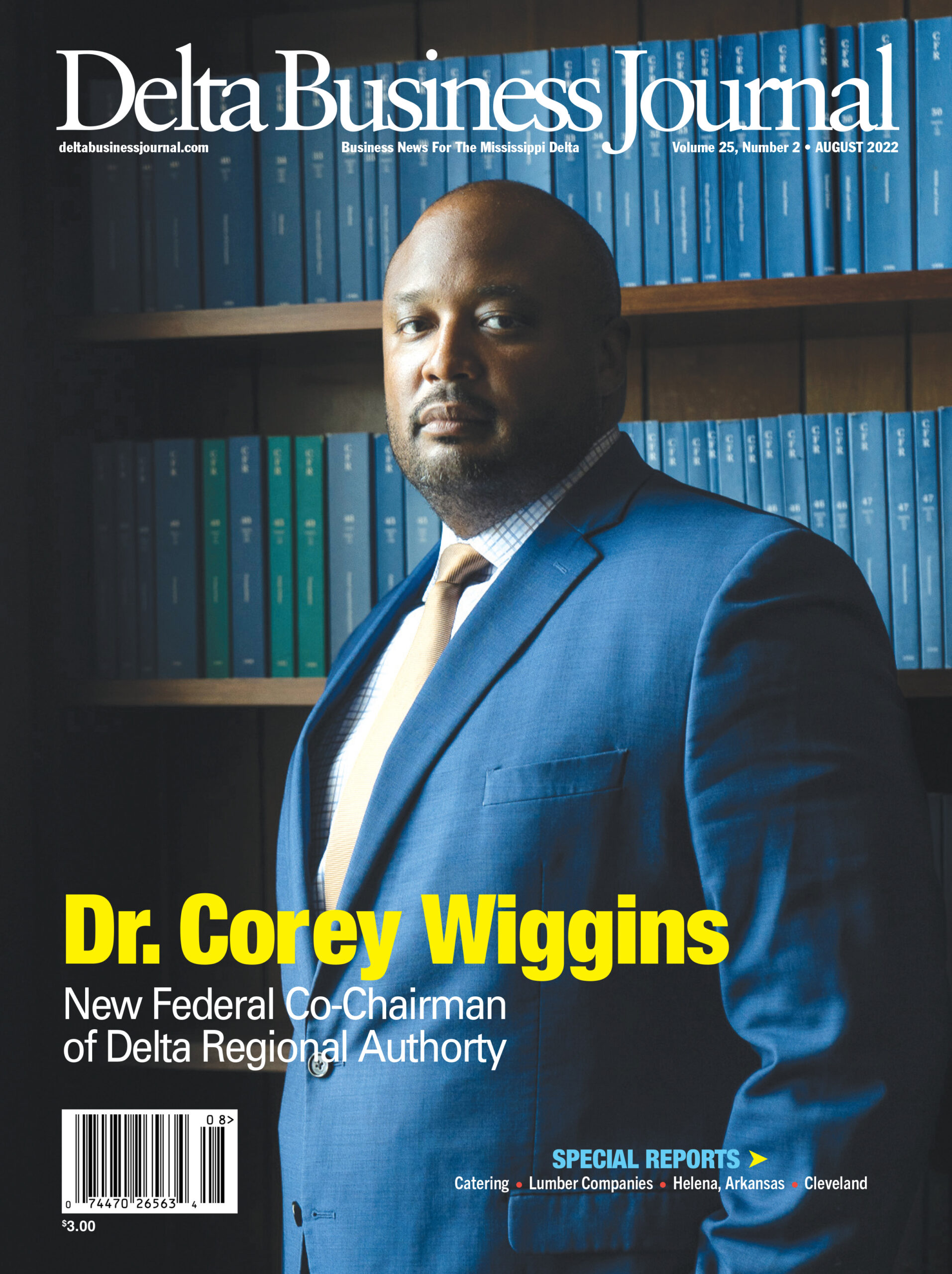New Federal Co-Chairman of Delta Regional Authority
By Becky Gillette • Photography by Austin Britt Photography
New Federal Co-Chairman of Delta Regional Authority Dr. Corey Wiggins was raised in Hazlehurst on land purchased by his great-grandfather in the 1930s. He grew up in a close-knit family and community with the family church, the family cemetery, his grandparent’s house and other relatives nearby. He and his two younger brothers played army in the woods.
“My father’s family had cows, chickens and goats on a farm near Hazlehurst,” says Wiggins. “My father graduated from high school in Hazlehurst in 1971. When I went to high school, I had the same teachers who had taught my father. My mother’s family farmed cotton and soybeans near Wolf Lake in Humphreys County, and lived in Yazoo City. When I was not in Hazlehurst, I would spend my summers with them in the Mississippi Delta. We had a secure upbringing and cohesive faith in God. Those connections to family and faith have given me a firm foundation for my life.”
While it was more than ten miles to the homes of any of his friends, he felt blessed to live in a rural community where he could go anywhere he wanted in the world by reading a book.
“I was blessed to be able to use books for exposure to the world,” he says. “I loved reading stories about different places and people. I still carry a lot of that today. You can never give me too much information.”
His Aunt Georgia Wiggins, a professor at Hinds Community College in Utica, heavily influenced his passion for reading. She would bring him library books and have him do book reports.
“That really developed in me a voracious mentality about consuming information,” says Wiggins. “I read everything because she instilled in me the importance of reading. In high school, I was a good student academically. I played football in high school. I started out at Alcorn State on a football scholarship. After my freshman year, I switched to an academic scholarship.”
In high school and college, his goal was to become a physician or a medical researcher. After graduating with a degree in biology from Alcorn, he had one internship doing immunology research and another doing physiology research. He then received the Barbara Jordan Health Policy Scholars Fellowship from the Kaiser Family Foundation. He worked in Sen. George Voinovich’s office.
“After that experience, I decided I wanted to focus on health policy, how I could help improve the system,” says Wiggins. “I went to the University of Alabama Birmingham for graduate school where I got a Master’s in Health Policy and a PhD in Health Promotion and Health Education. While working on my PhD, I moved from Alabama back to Mississippi where my wife was finishing up dental school. I was able to get a job in the Mississippi State Legislature Performance Evaluation and Expenditure Review (PEER) office in 2008.”
That was an interesting time. The country was in a recession, Barack Obama was beginning his first term, and in 2009 Congress had passed the American Recovery and Reinvestment Act. Wiggins was the lead person on the PEER staff who focused on the budget implications and implementation of ARRA for Mississippi, a role he was chosen for because of his previous federal policy experience. He appreciated the opportunity to use his talents to do good things for the people of Mississippi.
Now he has opportunities to do more good things, not just for Mississippi, but the seven other states included in the DRA, which oversees economic development, healthcare and infrastructure services to a total of 252 counties and parishes in one of the most impoverished regions of the country.
“DRA is a unique agency because it touches so many of the basic issues that are important to people,” says Wiggins. “In addition to qualify-of-life issues, how do we create more jobs? How do we develop more opportunities for people? We have the ability to be engaged and directly involved in improving the quality of life in the areas we cover.”
During his first months on the job, Wiggins focused on intentional listening in the communities. Every community across the region has assets and he sees DRA’s job as helping them achieve their goals.
“Local community leaders know how they want their communities to look, taste, feel and smell,” he says. “It is our job to be supportive of them accomplishing that. One of the things that is important to me is making a difference not just in so many small rural communities across our region, but also in our urban corridors. We can make a difference in big cities like New Orleans and small cities like Forest City, Ark., and Eutaw, Ala. A big part of the power of DRA is to be able to partner with these local leaders to leverage DRA resources and other resources of the federal government as they move to improve economic development, support basic infrastructure projects, help create a competitive workforce, and focus on maximizing opportunities.”
DRA has released an Equity Action Plan that Wiggins calls “a big deal. We are looking at our processes, making sure we are operating in an ethical way, and looking at existing funding. We are making sure this is an agency where we are thinking about equity with everything we do. For us, equity is not a one-off effort, but part of the DRA process.
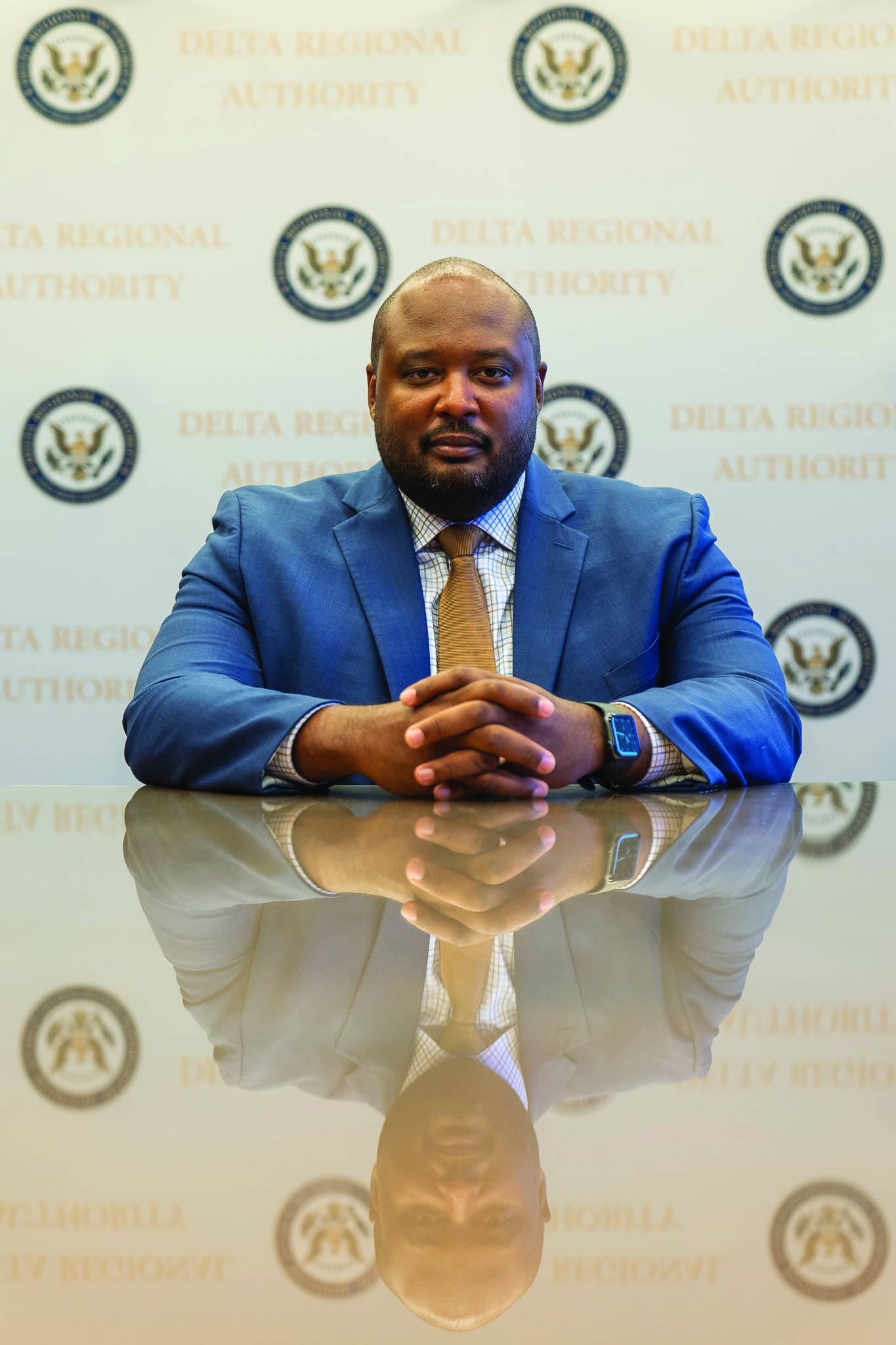
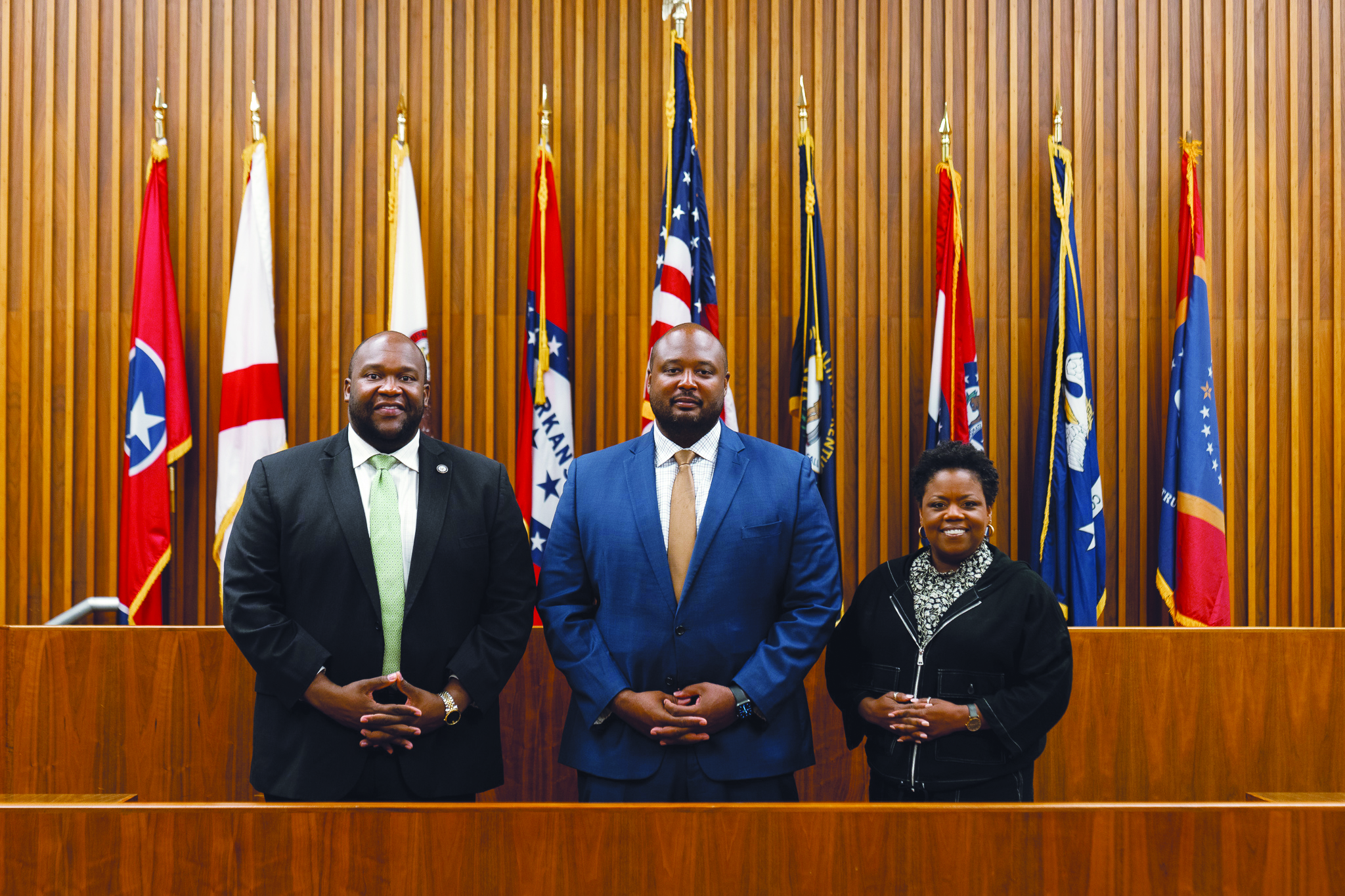
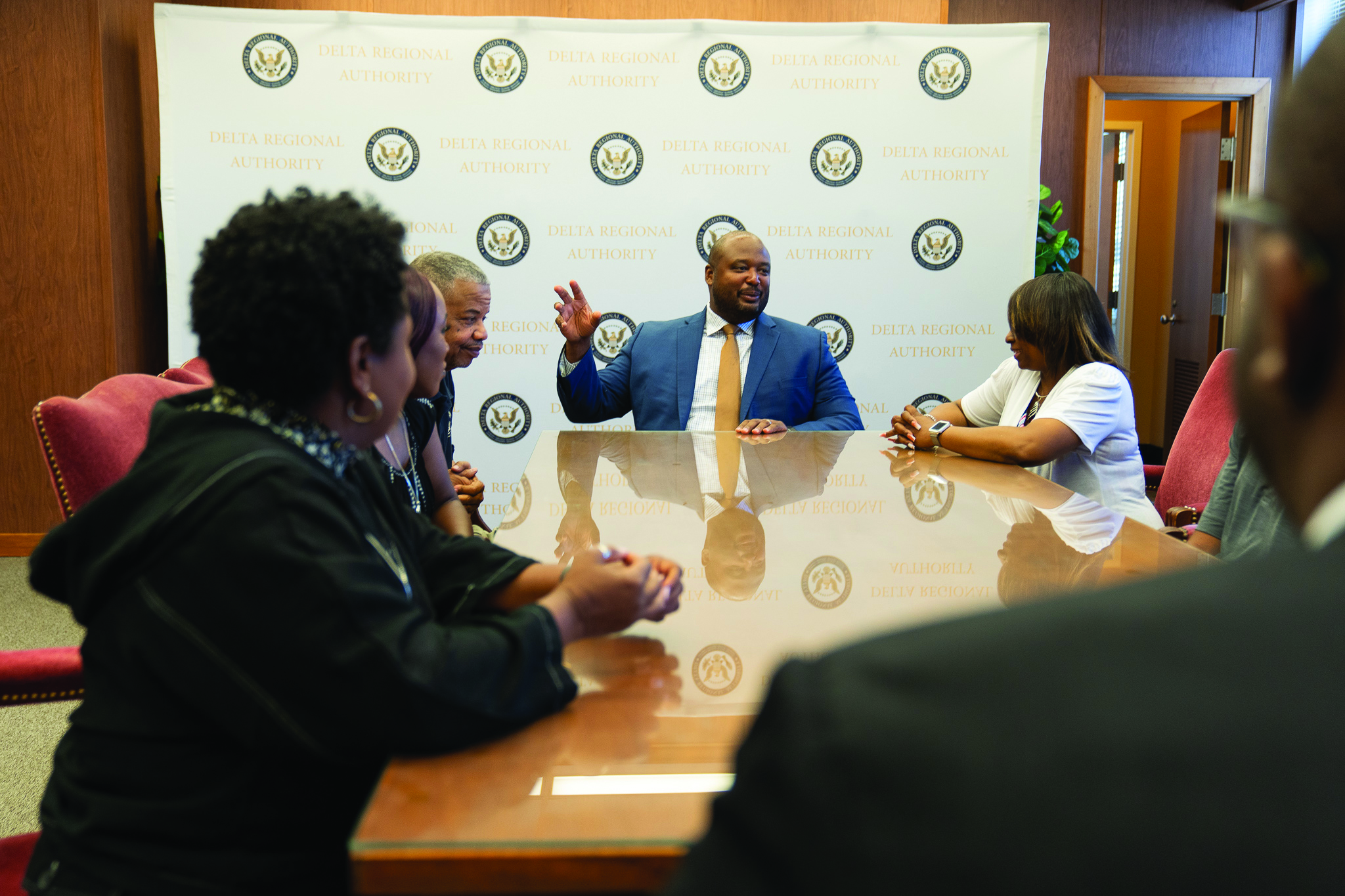
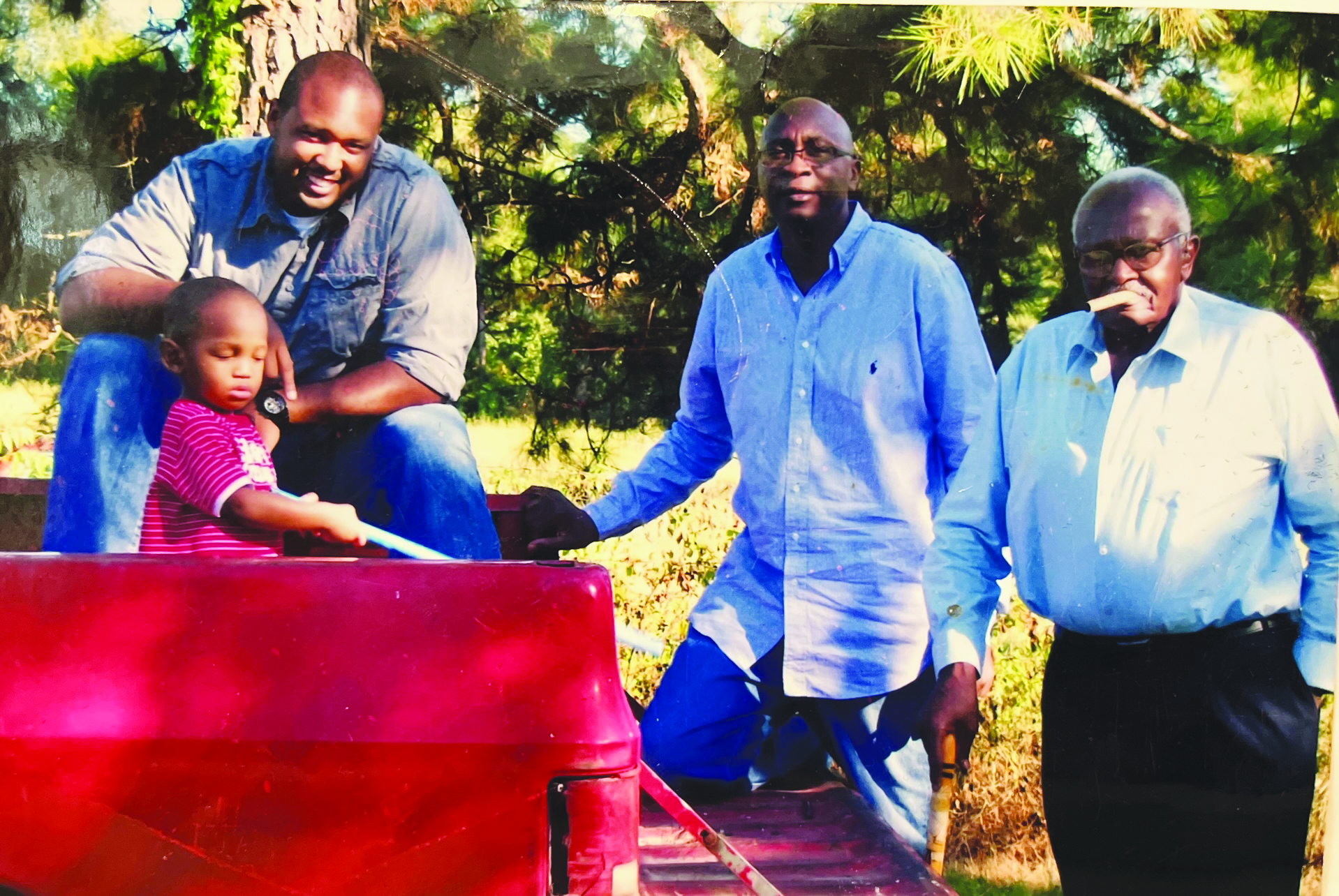

“While the Delta has many abundant assets, it also has deeply entrenched obstacles that limit access to opportunity for some, including generational poverty and racial inequity, that is exacerbated by inadequate infrastructure, lack of access to quality education and healthcare, and limited employment opportunities. DRA’s Equity Action Plan is only the first step in making appropriate programmatic and policy-related changes that will support our equity agenda focused on listening to all stakeholders, operationalizing equity in practice and policy, and increasing participation from marginalized groups throughout the Delta region.”
Wiggins will continue his listening tour across the eight states looking at programs to make sure they are engaging all of their stakeholders, and holding themselves accountable.
“It does bring me a lot of joy and satisfaction to know we can have a big impact around the region,” says Wiggins. “I get excited about the opportunities we have. Part of our job is to make sure the public’s money is used to do good, directly impacting the lives of people in our region.”
His wife, Shenekia Wiggins, has practiced as a public health dentist in Hinds County, and over the past two years has worked part-time doing consultant dentistry around rural health issues and also seeing patients in nursing homes and clinics. The couple have three boys, ages thirteen, ten, and seven, who are in the Madison County Public Schools.
“They all live active lives,” says Wiggins. “We are baseball and soccer heavy. Weekends when all the kids are playing soccer, we can have twelve ball games in a weekend. I love to see them participating in sports.”
He and his wife are both involved in many different community and civic groups, but their primary focus is raising their sons. In addition to sports, they are in advanced classes in school.
“It is much like I grew up,” says Wiggins. “As a family unit, quality time is all important to us. Oftentimes you will find us all together going to visit her parents and my parents in the springtime.”
Wiggins says sports were an important part of his life. Part of team sports is working cohesively. You are responsible to your teammates to do your job.
“I learned so many things around teamwork, perseverance and resilience,” he says. “You have to be resilient because things don’t always turn out like you want them to. How do you reflect on that and go out there and do it again?
“From standpoint of DRA, there are challenges and obstacles that the region is facing. Each and every day we go out there and continue to do our job. Our communities are resilient communities and we will be there every step of the way. When I talk to our team at DRA, my expectation is for folks to do their job because we have to be responsible to each other, and the public we serve.”
In his spare time, he enjoys hunting and fishing. He looks forward to deer season when he can go sit in a deer stand.
“I’ve got to find some fishing holes near the main office in Clarksdale for when I get off work,” says Wiggins, who also has an office in Washington, D.C.
Wiggins most recently served as the executive director of the Mississippi State Conference NAACP. Previously, he was senior vice president of policy at Hope Enterprise Corporation and Hope Credit Union. He also served as executive director of the Mississippi Economic Policy Center and as director of the Hope Policy Institute, where he focused on strengthening communities, building assets, and improving lives in economically distressed parts of the Mid-South. He has a certificate of nonprofit leadership from Boston College and has furthered his training through fellowships with the Kaiser Family Foundation, the W.K. Kellogg Foundation, and the Massachusetts Institute of Technology (MIT).

